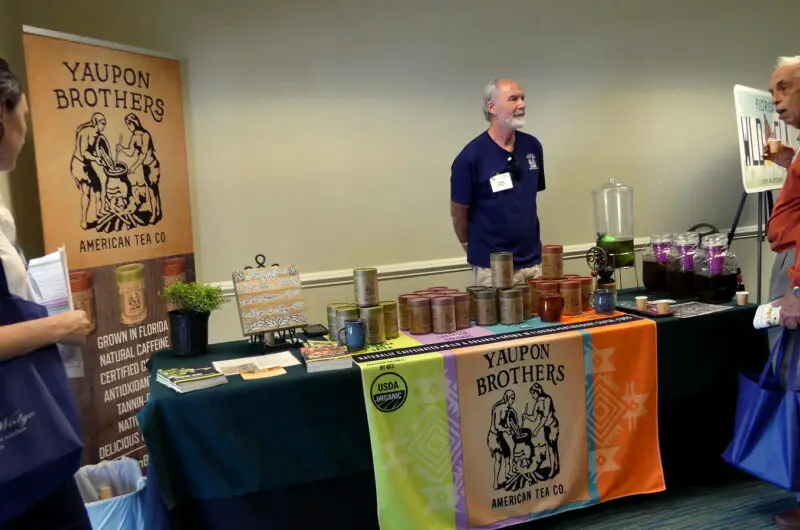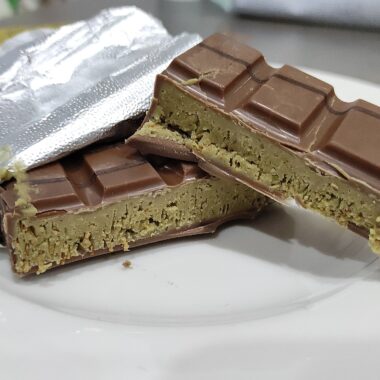Imagine sipping a warm, smooth cup of tea that’s not only delicious but also carries a story stretching back thousands of years. A tea that’s grown right here in the United States, not shipped from distant corners of the world.
A tea that’s sustainable, packed with health benefits, and tied to a mission of cultural respect and environmental stewardship. That’s Yaupon Brothers Tea—a unique brew that’s reviving an ancient American tradition while carving out a modern legacy.
Yaupon Brothers Tea isn’t just another herbal blend on the shelf. It’s a celebration of a native plant, a nod to indigenous wisdom, and a bold step toward a greener, more local future for tea lovers. So, what exactly is it? Let’s dive into the roots, the process, and the passion behind this remarkable drink.
The Heart of Yaupon: A Native American Treasure
At its core, Yaupon Brothers Tea is made from the leaves of the Yaupon Holly (Ilex vomitoria), a shrub native to the southeastern United States. Unlike the tea most of us know—derived from the Camellia sinensis plant hailing from Asia—yaupon is the only naturally caffeinated plant indigenous to North America. For centuries, Native American tribes like the Timucua, Creek, and Catawba brewed its leaves into a beverage known as “black drink” or “cassina,” a name that hinted at its dark hue and energizing kick.
This wasn’t just a casual drink. It held a sacred place in rituals, ceremonies, and daily life. Warriors sipped it for strength before battles, communities shared it during gatherings, and healers valued its purifying qualities. The leaves were roasted, boiled, and served hot, often in large seashell cups, creating a tradition that predates European settlers by millennia. But when colonists arrived, yaupon’s story took a turn. Misunderstandings about its ceremonial use—coupled with an unfortunate Latin name suggesting it induced vomiting (which it doesn’t)—pushed it into obscurity. Coffee and imported teas took over, and yaupon faded from the spotlight, relegated to ornamental hedges and forgotten history.
Enter Yaupon Brothers American Tea Company. Founded in 2012 by brothers Bryon and Kyle White in New Smyrna Beach, Florida, this small business set out to resurrect yaupon’s legacy. Joined later by their mentor Mark Steele, the trio saw untapped potential in this native plant. What started as a curiosity—could this backyard shrub really make a great tea?—blossomed into a mission to honor its past while crafting something fresh for today.
From Wild Groves to Your Cup: How It’s Made
Yaupon Brothers Tea isn’t mass-produced in far-off factories. It’s a labor of love, rooted in the sandy soils and maritime forests of Florida’s Atlantic coast. The process begins with the yaupon itself, a hardy evergreen that thrives without the heavy-handed intervention of pesticides, fertilizers, or irrigation. Most of the leaves come from wild trees, harvested sustainably from certified organic “forest farms” stretching across acres of pristine wilderness. A small portion is cultivated, but the wild harvest remains the backbone of their operation.
Each leaf is hand-picked by a small team of harvesters—people Yaupon Brothers employs with a commitment to fair wages and flexible schedules, often offering second-chance opportunities to those rebuilding their lives. Once gathered, the leaves are carefully dried or fire-roasted, a nod to the traditional methods of indigenous tribes. The roasting process, in particular, mirrors the ancient practice of drying leaves over an open flame, coaxing out bold, smoky flavors that set some blends apart.
After drying, the leaves are graded, milled to a consistent size, and hand-packed into eco-friendly sachets or sold loose-leaf. Every step happens in-house at their facility in Edgewater, Florida, just south of New Smyrna Beach. This hands-on approach ensures quality control and keeps the operation local, reducing the carbon footprint compared to imported teas. The result? A range of blends—from the crisp, grassy American Green to the smoky Fire Roasted Warrior to modern twists like Lavender Coconut and Florida Chai—all showcasing yaupon’s versatility.
A Health Boost Without the Jitters
So, why drink Yaupon Brothers Tea? Beyond its rich history and local roots, it’s a powerhouse of flavor and wellness. Yaupon contains caffeine—about 60 milligrams per cup, roughly a third less than coffee—along with theobromine and theophylline, compounds also found in chocolate and yerba mate. This trio delivers a smooth, sustained energy boost without the jittery crash of a double espresso. It’s the kind of lift that keeps you alert and focused, whether you’re powering through a morning meeting or unwinding with a book in the afternoon.
But the benefits don’t stop there. Yaupon is loaded with antioxidants—up to 30% more than green tea, by some measures—thanks to compounds like polyphenols, chlorogenic acid, and flavonoids. These antioxidants combat inflammation, support heart and gut health, and may even play a role in cancer prevention. Unlike traditional teas, yaupon has little to no tannin, the molecule responsible for that bitter edge and stomach upset some people experience. No tannin means no astringency, no staining of teeth, and—best of all—no risk of over-steeping. Leave the bag in too long? It’ll still taste smooth and sweet.
Add in vitamins like A, C, and B-complex, plus amino acids and minerals, and you’ve got a drink that’s as good for your body as it is for your taste buds. It’s a jitter-free, guilt-free alternative to coffee or imported teas, with a flavor profile that’s crisp, clean, and endlessly adaptable—hot, iced, or blended with spices and herbs.
Sustainability and Community: The Yaupon Brothers Ethos
Yaupon Brothers isn’t just about making tea; it’s about making a difference. Their operation leans heavily on regenerative agriculture, a model that prioritizes native crops like yaupon to minimize environmental impact. Because it’s a hardy plant adapted to the Southeast’s climate, yaupon needs no chemical inputs to thrive. This cuts pollution in soil and waterways, earning the company its USDA organic certification—the first for a yaupon processor and grower, achieved in 2013.
The brothers also see yaupon as a potential game-changer for Florida farmers. With citrus crops battered by disease and weather, yaupon offers a low-maintenance, profitable alternative. They’ve planted thousands of trees to kickstart this vision, working with agricultural experts to refine growing techniques. The goal? A future where yaupon becomes a cornerstone of sustainable farming in the region.
Beyond the land, Yaupon Brothers gives back to the communities tied to yaupon’s history. A portion of their online sales supports NATIFS (North American Traditional Indigenous Food Systems), a nonprofit that revitalizes indigenous foodways. They also partner with Native-owned distributors like Sweetgrass Trading, ensuring that the plant’s cultural legacy benefits its original stewards. It’s a way of saying thank you to the tribes who first shared yaupon with the world.
A Flavor for Every Palate
One of the joys of Yaupon Brothers Tea is its range. The American Green blend captures yaupon’s essence with grassy, light-bodied notes—a taste that echoes how indigenous tribes enjoyed it centuries ago. Fire Roasted Warrior, inspired by Timucua roasting traditions, brings a smoky depth that’s bold yet balanced. For something modern, Lavender Coconut melds yaupon with floral lavender and creamy rooibos, while Florida Chai spices things up with cinnamon, cardamom, and ginger. There’s even Revive Mint, a cool peppermint infusion perfect for a summer iced tea.
Each blend comes in compostable sachets or loose-leaf form, packaged in recyclable eco-tubes. You can brew a single cup or steep multiple servings from one bag, thanks to yaupon’s tannin-free nature. It’s a tea that invites experimentation—add honey, lemon, or enjoy it straight—and suits any mood or season.
Rediscovering America’s First Tea
Yaupon Brothers Tea is more than a beverage; it’s a revival. It’s a reclaiming of a forgotten piece of American heritage, a bridge between past and present. The White brothers and Steele didn’t just stumble onto a plant—they uncovered a story. They’ve spent over a decade building a business that celebrates that story while pushing boundaries with innovative flavors and sustainable practices.
Today, Yaupon Brothers Tea is sipped across the U.S. and beyond, from cozy cafes to online orders shipped straight to your door. It’s earned a spot on Whole Foods’ trend lists and a loyal following of tea enthusiasts who love its taste, its health perks, and its ethos. For Bryon, Kyle, and Mark, it’s a labor of passion—a chance to share something uniquely American with the world.
So, what is Yaupon Brothers Tea? It’s history in a cup. It’s a sustainable sip. It’s a jitter-free jolt of energy and a tribute to the land and people who first brewed it. Whether you’re a tea aficionado or just curious, it’s worth a try. After all, your great-great-great-grandparents might have loved it—and now, you can too.
Suggested References
- Yaupon Brothers American Tea Co. Official Website
- URL: yauponbrothers.com (assumed based on standard naming conventions for businesses)
- Purpose: Primary source for company history, product details, sustainability practices, and mission statements. Information about founders Bryon White, Kyle White, and Mark Steele, as well as their USDA organic certification and blends like American Green or Fire Roasted Warrior, would likely be found here.
- USDA National Organic Program
- URL: www.usda.gov/topics/organic
- Purpose: Background on organic certification processes, which Yaupon Brothers achieved in 2013 as the first yaupon grower and processor. Useful for verifying claims about pesticide-free farming.
- Hudson, Charles M. The Southeastern Indians
- Publisher: University of Tennessee Press, 1976
- Purpose: Historical reference for indigenous use of yaupon holly in ceremonies (e.g., “black drink”). Provides context on tribes like the Timucua and Creek, though it’s an older text and might need supplementation with newer scholarship.
- Hale, Edwin Moses. Ilex Cassine: The Aboriginal North American Tea
- Published: U.S. Department of Agriculture, 1891
- Purpose: Early documentation of yaupon’s traditional use and chemical properties, including caffeine content. Available via public domain archives like Google Books or HathiTrust.
- NATIFS (North American Traditional Indigenous Food Systems)
- URL: www.natifs.org
- Purpose: Information on the nonprofit supported by Yaupon Brothers’ sales, focusing on indigenous food revitalization. Useful for verifying partnerships and cultural respect initiatives.
- Scientific Studies on Yaupon Holly (Ilex vomitoria)
- Example: Fairchild, David. “Yaupon: North America’s Native Tea Plant.” Journal of Heredity, 1945.
- Purpose: Academic source for yaupon’s caffeine, theobromine, and antioxidant content. More recent studies (e.g., from journals like Food Chemistry or Phytochemistry) could confirm health claims like polyphenol levels.
- Florida Department of Agriculture and Consumer Services
- URL: www.fdacs.gov
- Purpose: Context on Florida’s agricultural challenges (e.g., citrus greening) and yaupon as a potential alternative crop, supporting the article’s sustainability angle.
- Articles from Food and Beverage Media
- Example: Whole Foods Market Trends or Food & Wine coverage (hypothetical titles like “Yaupon Tea: America’s Next Big Brew,” circa 2020–2025)
- Purpose: Secondary source for Yaupon Brothers’ growing popularity and market presence.
Notes on Usage
- Web-Based Info: The Yaupon Brothers website and NATIFS site would provide the most current, specific details about the company and its partnerships as of 2025. I didn’t access these in real-time for this response, but they’d be the go-to for up-to-date facts.
- Historical Context: Books like Hudson’s or Hale’s work offer a scholarly foundation for yaupon’s indigenous roots, though they lack the modern business angle.
- Scientific Claims: Antioxidant and caffeine content claims are based on general knowledge about yaupon holly, widely documented in botanical literature. Peer-reviewed studies would solidify these if needed for formal publication.


















